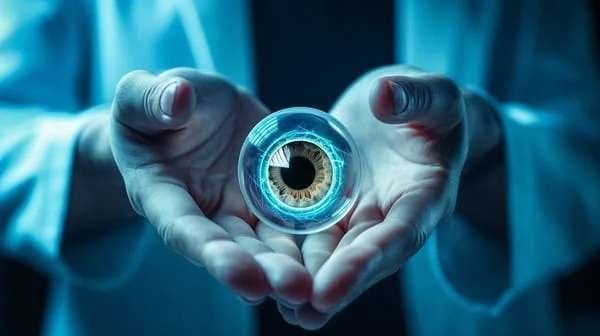
SMILE Pro (Small Incision Lenticule Extraction Pro) is the latest advancement in laser vision correction technology, evolving from the earlier SMILE (Small Incision Lenticule Extraction) procedure. Both SMILE Pro and SMILE are innovative forms of minimally invasive laser eye surgery used to correct refractive errors, such as myopia (nearsightedness), but SMILE Pro offers enhanced features and improved patient experience. Additionally, both of these procedures differ significantly from iLASIK, which is a variation of LASIK (Laser-Assisted in Situ Keratomileusis). Below is an overview of SMILE Pro and a comparison with SMILE and iLASIK.
What is SMILE Pro?
SMILE Pro is a newer version of the original SMILE procedure, developed to offer faster and more precise laser correction for refractive errors. It uses the latest technology in laser eye surgery to improve comfort, reduce treatment time, and enhance visual outcomes.
How is SMILE Pro Different from SMILE?
1. Femtosecond Laser Speed:
– SMILE Pro uses an upgraded version of the femtosecond laser, which operates faster compared to the one used in SMILE. This reduced treatment time provides greater comfort to patients.
– The enhanced speed of the laser also allows for more precise corneal tissue extraction, improving the quality of the visual outcome.
2. Treatment Time:
– SMILE Pro is designed to complete the lenticule extraction process more quickly than SMILE. The overall duration of the surgery has been reduced significantly, making it a more convenient experience for the patient.
3. Smaller Incision:
– SMILE Pro features an even smaller incision compared to SMILE, reducing the size from around 2-3 mm to about 2 mm. This helps in quicker healing, decreased risk of dry eye, and better postoperative comfort.
4. Recovery and Visual Outcomes:
– Due to the enhanced precision and faster laser speed, SMILE Pro tends to offer faster recovery with sharper and more stable visual outcomes, compared to SMILE.
5. Patient Comfort:
– The improved efficiency of SMILE Pro means that patients experience less time under the laser, which reduces discomfort and anxiety during the procedure.
How Does SMILE Pro Compare to iLASIK?
1. Procedure Technique:
– SMILE Pro and SMILE are flapless procedures that involve creating and removing a small lenticule (a disc of tissue) from within the cornea through a tiny incision, reshaping the cornea to correct refractive errors.
– iLASIK, on the other hand, involves creating a flap on the cornea, folding it back, and using an excimer laser to reshape the cornea. The flap is then repositioned to heal naturally.
2. Corneal Impact:
– SMILE Pro involves a smaller incision and does not require the creation of a flap, preserving corneal strength and resulting in fewer complications related to flap dislocation.
– In iLASIK, creating a corneal flap can lead to a higher risk of flap-related complications, such as dry eye and flap dislocation during trauma.
3. Recovery Time:
– SMILE Pro offers quicker healing compared to iLASIK due to the minimally invasive nature of the procedure. Patients also experience fewer issues with dry eyes.
– iLASIK may have a slightly longer recovery time, especially related to flap healing, and patients may need to be cautious of activities that could dislodge the flap.
4. Suitability:
– SMILE Pro is especially suitable for patients with active lifestyles or those at risk of eye trauma, as there is no flap to displace.
– iLASIK can be an effective option for a broader range of refractive errors, including hyperopia (farsightedness), which SMILE Pro cannot yet address.
5. Visual Outcomes:
– Both SMILE Pro and iLASIK provide excellent visual outcomes with high accuracy and predictability. However, SMILE Pro’s advanced technology can lead to improved stability and potentially fewer complications in the long run.
Summary
SMILE Pro is a modern enhancement of SMILE, offering faster laser speed, reduced treatment time, a smaller incision, and improved visual outcomes. Compared to iLASIK, SMILE Pro is less invasive, has a quicker recovery, and reduces the risk of complications related to flap creation. Choosing between SMILE Pro, SMILE, and iLASIK depends on individual patient needs, refractive error type, lifestyle, and specific corneal characteristics. Consulting with an experienced ophthalmologist will help determine the best option for each patient.

